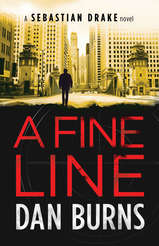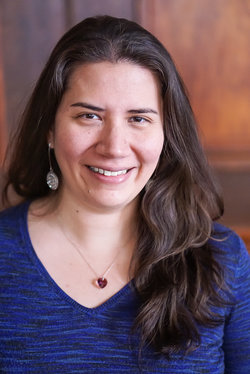|
Welcome to week twenty-six of the #WritersQuick5 series - where we learn about writing from fellow writers.
This week it’s an honor to bring you insights from author, screenwriter, and poet, Dan Burns. Dan is a fellow Chicago Writers Association member and his fourth published book (third work of fiction) A Fine Line was released on June 6, 2017 by Chicago Arts Press.
Another highlight I want to mention is a short film that Dan wrote, Out of Touch. The film is absolutely worth watching and was named an “Official Selection” for the Chicago International REEL Shorts Film Festival and for the Los Angeles Lift-Off Film Festival.
You can find information his books, screenplays, and MUCH more on his website. Let’s see what Dan has to say… Question #1 - Where do you write and why do you write there? Every morning, I walk from my home to my office in downtown La Grange. I have this great, small office above a restaurant, like one of those private eye offices in old noir movies, that provides the quiet and secluded environment I need to be productive. When I'm at home, there are too many distractions and I have no self-discipline, so having a place to get away and get my work done is a necessity. In my office, I'm surrounded by my books and memories of my writing mentors and have no distractions. No phone. No Internet. Just writing. If you're interested, you can check out this short video of my office environment. Question #2 - What is unique about writing for your particular genre? For me, what is unique is that I'm not locked into a particular genre. I love the boundless flexibility of being able to write in a variety of forms and genres. My first novel was a contemporary family drama. My second book was a collection of short fiction that really pushed the boundaries of genre. My newest novel is a Chicago mystery. My hope is that every story I write pushes me out of my comfort zone to try and explore something different. Writing a mystery novel was my most challenging project to date. Research was a necessity to make the story believable, and I spent an extensive amount of time understanding Chicago politics and police procedure. My protagonist, Sebastian Drake is an expert marksman, and I had to spend dozens of hours at the gun range, shooting his gun, to fully understand what was possible. Plot also played a big role in my mystery novel, more so than my other stories. Nothing can be left out and every question must be answered. The writing process was quite fun and extremely challenging at the same time. Question #3 - What are some of your grammar or punctuation pet peeves? What drives me nuts are all the grammar and punctuation errors that I'm guilty of, and my first drafts are laced with them. The editing process is critical to get my story ready to publish, and I'm fortunate to have a number of editors and trusted readers who allow me to get the story down onto the page and then help me to make it perfect. I find that I just get too close to my work, so close that I can't see the errors. I can edit and revise a story a dozen times, and then my editors and readers help me to realize that I'm not a very good editor. But I'm learning. I find that the editing process is the most important step in helping me to become a better writer. I find that I'll often get stuck on a word, maybe like it too much, and then use it too often throughout a story. I have to cut the repeat offenders. Adverbs also seem to come easily (you see!) as I'm writing, and I have to go back through and search for all the "ly" words and cut them all. Adverbs seldom add value to the sentence. I don't think much of the word "got" and try to eliminate it from my writing. For dialogue attribution, I use "said" and "asked," nothing else, and I try not to use them only when necessary to maintain flow and understanding. Contractions and hyphenated words also seem to find their way into my stories, and I have to go back and review each one to make sure they're correct and appropriate. Spelling is a killer for the reader's flow of the story, so spell-check and people-check are critical steps. The most valuable aspect of the editing process for a book is the Advance Reading Copy. After I revise a manuscript a dozen times and go through several iterations of developmental editing and copyediting, it's important to print the book and get it into the hands of my trusted readers. They are the ones who let me know if it's ready to officially go out into the world. Question #4 - At what point in your writing process do you start to bring other people in to review your work? I bring people into the process when the story is finished. Often, there are so many potential roadblocks for completing the story, that I have to focus on that single goal. For me, "finished" is flushing out an idea fully and getting the words out of my head and the story down onto the page. Afterward, I let the story sit for a month before going through and revising to the best of my ability. Then it's time for a fresh look from different eyes and perspectives, from people I trust to tell me honestly about how to improve the story. Question #5 - What advice would you give to a new writer about the writing process? Sit down and write, as often and as much as you can. Many people talk about being a writer, but only by actually getting the words down onto the page can you actually be a writer. Read books by authors who you admire and who have been successful writing the stories you want to write. Develop your idea, write your story, and don't stop until you're finished. Don't edit or revise until the story is written, for those activities can develop into insurmountable distractions and roadblocks. Better to have a completed story that you can improve than to have an idea that you never fully act upon that fades away. And keep a journal of all your ideas. If I don't write down my ideas, they tend to vanish, never to return again, and that's a darn shame. Thank you Dan for these incredible answers. I also keep a journal of story ideas! I also love the advice, “Develop your idea, write your story, and don't stop until you're finished. Don't edit or revise until the story is written, for those activities can develop into insurmountable distractions and roadblocks.” I’m guilty of this all the time, pouring over a passage over and over again when I should move on. Very good to keep in mind! Please learn more about Dan and his books and works on his website. More importantly, go out and buy his new book A Fine Line. I have my copy! You can also follow him on Facebook, on Twitter, or you can subscribe to his YouTube channel. *** If you would like to be featured as a writer in the #WritersQuick5 series, please just reach out and let me know. I’d love to promote your work as well! For updates on #WritersQuick5 and other info from me, please follow me on Twitter or check back with this blog for all the latest.
0 Comments
Leave a Reply. |
AboutWriter. Archives
June 2020
Categories |

